Teaching English Overseas is both a job and a responsibility, and the CELTA programme is built to make sure high standards are met and maintained. Candidates are assessed continuously during the course and there is no final examination. An external assessor, who is appointed by Cambridge ESOL, moderates each course, ensuring the standardization of the CELTA programme internationally.
The main components to the grading are:
The teaching practice – candidates teach a total of six hours with classes at different levels of ability. The assessment is based on the candidate's overall performance at the end of the six hours.
The written assignments – there are four written assignments, focusing on: adult learning, the language system of English, language skills and classroom teaching. These are marked by the course tutors and moderated by the external assessor.
Professional development – the CELTA course also takes into consideration various aspects of professionalism and professional development. These include:
- Responsible and professional attitude to learning
- Responsible and professional attitude to planning and teaching of your lessons
- Punctuality and organisation
- Willingness to respond to feedback and adjust your own teaching appropriately
- Overall progress and professionalism in the field
Attendance – you are required to attend 100% of the course.
The CELTA certificate is awarded to candidates who satisfy all assessment criteria and complete all course requirements. These include:
- Attendance of 100% of the course
- Completion of all teaching practice and observations of experienced teachers
- Completion of all four assignments (three or more assessed as ‘Pass’)
There are three pass grades:
By the end of the course, candidates’ performance must match all of the descriptors
at a particular passing grade in order to achieve that grade.
Pass A
Candidates’ planning and teaching show excellent understanding of English
language learning and teaching processes.
- Candidates can plan effectively with minimal guidance. They can analyse target language thoroughly and select highly appropriate resources and tasks for successful language and language skills development.
- Candidates can deliver effective language and skills lessons, using a variety of classroom teaching techniques successfully.
- Candidates show very good awareness of learners and can respond so that learners benefit from the lessons.
- Candidates can reflect on key strengths and weaknesses and can consistently use these reflections to develop their teaching skills.
All CELTA assessment criteria are achieved and most are well achieved.
CELTA requirements for written work are met.
Pass B
Candidates’ planning and teaching show good understanding of English language learning and teaching processes.
- Candidates can plan effectively with some guidance. They can analyse target language well and select appropriate resources and tasks for successful language and language skills development.
- Candidates can deliver effective language and skills lessons, using a variety of classroom teaching techniques successfully.
- Candidates show good awareness of learners and can respond so that learners benefit from the lessons.
- Candidates can reflect on key strengths and weaknesses and can generally use these reflections to develop their teaching skills.
All CELTA assessment criteria are achieved and some are well achieved.
CELTA requirements for written work are met.
Pass
Candidates’ planning and teaching show satisfactory understanding of English language learning and teaching processes.
- Candidates can plan effectively with guidance. They can analyse target language adequately and generally select appropriate resources and tasks for successful language and language skills development.
- Candidates can deliver satisfactory language and skills lessons, using a variety of classroom teaching techniques with a degree of success.
- Candidates show some awareness of learners and some ability to respond so that learners benefit from the lessons.
- Candidates can reflect on some key strengths and weaknesses and generally use these reflections to develop their teaching skills.
All CELTA assessment criteria are achieved. Some may be less well achieved.
CELTA requirements for written work are met.
Fail
Candidates’ planning and teaching show minimal understanding of English language learning and teaching processes.
Candidates’ performance does not match all of the Pass descriptors.
Some CELTA assessment criteria are not achieved and/or CELTA requirements for written work are not met.
Please note that completion of the course does NOT guarantee the award of the Certificate. It is possible to fail the course, although the CELTA program does have a very low fail rate. This is partly because there is a selection process to be accepted onto the course, and also because we offer a lot of support and guidance – tutorials, feedback, etc. – once the course has started.
Candidates who successfully complete the course, receive both the Cambridge CELTA certificate and a report/letter from the trainers at Shakespeare School. The letter describes the candidate’s performance in some detail and serves as a useful reference for employment as a skilled professional in teaching English overseas.
All Shakespeare School trainees receive an individual report, whether or not they receive Cambridge Certification.
Ready to start you journey towards teaching English overseas? Learn more about the resources and books you need for the CELTA.
GET IN TOUCH
Testimonials
“This course will be really useful when I go back to school and I hope my students will benefit from all I have learned.”
Marta J., Spain
“Although very intense, the CELTA course has to be where I have learned the most about teaching.”
Diana Graur, Romania
“I honestly can’t imagine teaching without the knowledge I’ve gained through the CELTA training.”
Ramona Ivan, Romania

